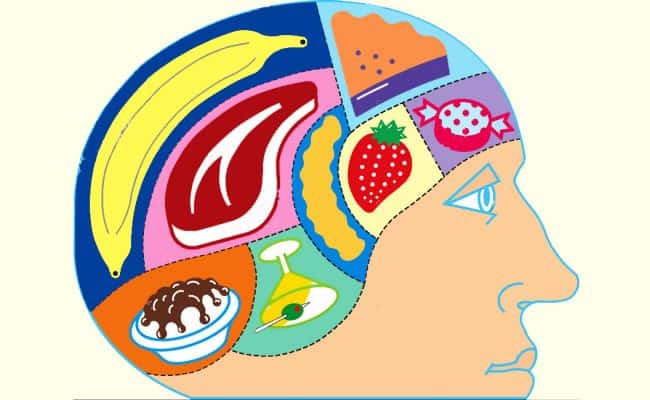
There are many hormones that send messages between the brain, gastrointestinal tract and fat stores that help regulate appetite. However, our conscious choices can bypass the hormonal regulation, and sometimes our food intake is more driven from our environment as opposed to our true hunger signals.
In fact, it is estimated from research by Dr. Wansink from Cornell University (1) that we make about 200 food related decisions daily.
A big piece to controlling appetite is deciphering if your body is truly hungry, or if the appetite is coming from your brain.
Is your appetite physical or mental?
Hunger signals can be sent to the brain when blood sugar levels drop, the stomach is empty or body reserves start to get depleted.
The body is designed to have these systems in place so we know when to restore our energy levels.
However, in most Western countries we have constant stimulation of food advertisements; we can be stimulated to eat regardless of if we truly need more fuel or not.
We can feel the need to eat because of emotions, sight or smell of food, because other people around us are eating, social gatherings or just because food is accessible.
Very young children are in tune with their bodies and recognize when to stop eating if they are full and when to eat and not eat based on their internal hunger.
As we get older, we pick up more environmental cues that influence of decisions of appetite.
To control your appetite, learn to recognize what is driving you when you want to eat. Are you really hungry? Or are you bored, tired, angry, or eating just because everyone else is?
The issue is not that you can only eat if you are physically hungry but rather learning to control your appetite if you find yourself eating mostly because of environmental influences instead of physiological.
Find other healthy mechanisms besides eating if you find emotions affect your appetite, and remember it can take some time and patience for changing a behavior.
Drink some water
When your appetite kicks in, drink some water and wait before you eat. Your body may just need some more fluid, but you’re taking it as a sign to eat.
After you drink some water, you may realize you really aren’t that hungry.
Do some high intensity exercise
Does exercising increase or decrease your appetite? The answers are still trying to be fully understood from researchers, but it appears high intensity exercise may lower appetite hours to a day after exercise.
A 2014 study (2) found that appetite was suppressed, up to 38 hours, in overweight young men after high intensity intermittent exercise.
Another study (3) found similar results, and researchers concluded prescribing high intensity exercise for weight loss may be helpful for naturally lowering appetite.
High intensity exercise may lower appetite in the short term because it lowers the hormone ghrelin, which stimulates appetite.
Lactate and glucose levels in the blood can also be higher after high intensity exercise which can also lower appetite.
Your social circle
Who you eat with can actually affect the size of your appetite, according to a 2014 study from Dr. Wansink (4). This study found that the body type or size of the people you eat with or are surrounded by can influence how much food you eat.
Wansink and researchers found people were more likely to choose unhealthy foods to eat when eating by people who were overweight.
The same is true of the reverse: people were more likely to choose healthier foods when eating by people who were a healthy weight.
Other research (5) also suggests we tend to have similar eating patterns as those in our social circle. To help control your appetite, eat with others who have the same health goals as you do.
It can actually influence your food choices.
Higher protein breakfast
Eating a higher protein breakfast could actually influence your appetite later in the day, according to a 2014 study (6).
A higher protein breakfast for this study was considered a meal that provided 30% of calories from protein.
Keep food out of sight
If food is out of sight, it tends to be more out of mind. Keep your “trigger” foods on a high shelf, hidden behind other food or avoid certain areas, like break rooms, where you know treats are going to enticing.
Shifting your environment to making healthy choices can really help subtly control your appetite so you aren’t always fighting environmental cues to eat.
Conclusion
Appetite can be driven by hormonal cues or cues from our environment. To help control appetite, focus on why you want to eat.
Is your body telling you need more energy, or is it based on an emotion, sight, smell or convenience?
Other tangible tips to help control your appetite include drinking water before you eat, doing high intensity exercise and eating a higher protein breakfast.










